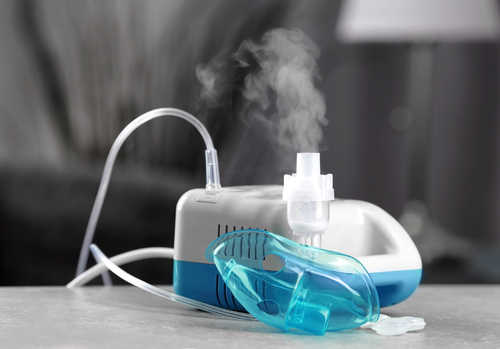Translate Bio’s MRT5005 May Improve Lung Function With a Single Dose, Interim Trial Data Shows
Written by |

A single dose of MRT5005, Translate Bio‘s first-in-class messenger RNA (mRNA) therapy for the treatment of cystic fibrosis (CF), improves patients’ lung function, interim data from a Phase 1/2 trial shows.
While stressing these are early results, the researchers called the findings “promising.”
CF is a genetic disorder caused by mutations in the CFTR gene, which provides instructions to make the cystic fibrosis transmembrane conductance regulator (CFTR) protein. This protein works as a channel that transports molecules, such as chloride and water, in and out of cells. Genetic mutations may affect normal protein folding and lead to its premature degradation, preventing it from reaching the cell membrane and performing its function.
MRT5005 was designed to normalize the function of the CFTR protein, regardless of the genetic mutation the cystic fibrosis patient carries. It does so by delivering mRNA — which provides instructions for producing a functional, or working CFTR protein — directly to cells in the person’s lungs through nebulization. In that mode of administration, medication is delivered in the form of mist to be inhaled directly into the lungs.
The effects of single and multiple doses of MRT5005 in people with CF are currently being investigated in the randomized, double-blinded, placebo-controlled, Phase 1/2 RESTORE-CF (NCT03375047) trial.
Discuss the latest research in the Cystic Fibrosis News Today forums!
The study is divided into two parts. In the first, a single ascending dose (SAD) phase, participants will receive a single administration of MRT5005 at three different doses — 8 mg, 16 mg, or 24 mg. The second part, a multiple ascending dose (MAD) phase, will have patients receive MRT5005 once per week, for five weeks, at different doses.
A total of 12 adults with CF have been enrolled into the first SAD phase of the trial. The participants were randomly assigned to receive one of three different doses of MRT5005, or a placebo, administered by nebulization. All participants were followed for one month after treatment.
Among the 12 participants in the first part of RESTORE-CF, 11 had at least one copy of the F508 deletion, the most common CFTR mutation associated with the disease. One person did not carry any copy of the F508 deletion, and was not eligible for treatment with CFTR modulators. Seven of the 12 participants were being treated with an approved CFTR modulator during the study.
New data from an interim analysis of the first SAD phase of RESTORE-CF showed that:
- All patients receiving a single intermediate dose (16 mg) of MRT5005, and one person given the highest dose (24 mg), experienced an increase in the maximal percent predicted forced expiratory volume in one second (ppFEV1) assessment, a measure of lung function. Those in the 16 mg-dose group demonstrated a mean maximal ppFEV1 increase of 15.7%, while the patient on the 24 mg dose experienced a maximum increase in ppFEV1 from baseline of 21.4%.
- MRT5005 was generally well-tolerated by the participants. No serious treatment-emergent adverse events were reported during the study in any of the different dose groups.
- The most common adverse events reported during the trial were cough and headache.
- Five people, including three who received the highest dose of MRT5005, had mild-to-moderate fever 4 to 10 hours after receiving the medication. However, these fever episodes resolved within 24 hours after treatment with standard fever-reducing medications.
“Effectively delivering the desired mRNA sequence is an essential step to producing functional CFTR proteins. While some variability in ppFEV1 from day to day in CF patients is expected in a trial of this size, we believe that the observed improvements in ppFEV1 from baseline and the timecourse of the effect support a CFTR-related mechanism, and may suggest that MRT5005 can enable the production of functional protein,” Steven Rowe, MD, director of the Gregory Fleming James Cystic Fibrosis Center at University of Alabama in Birmingham, and principal investigator of RESTORE-CF, said in a press release.
“These early promising data warrant continued evaluation of MRT5005 to optimize the dosing regimen, and assess the effect with repeated administration. If future data confirms this early positive signal, MRT5005 has the potential to provide clinically meaningful benefit for people with CF independent of CFTR genotype,” said Rowe, also a professor in the division of pulmonary, allergy and critical medicine at UAB.
According to Ronald Renaud, CEO of Translate Bio, “these encouraging interim results represent a milestone in the mRNA development landscape as this is the first time an mRNA therapeutic has been evaluated for its potential to treat a genetic disease. Also, as the first inhaled mRNA therapeutic, these data indicate the potential of mRNA therapeutics for the treatment of lung diseases.”
Translate Bio is planning to present the full data from this interim analysis at the upcoming North American Cystic Fibrosis Conference, to be held Oct. 31 to Nov. 2 in Nashville, Tenn.
Topline data from the second MAD phase of the trial is expected in 2020. In the meantime, Translate Bio plans to amend the clinical trial protocol to add two new doses — 12 and 20 mg — in the MAD portion.






